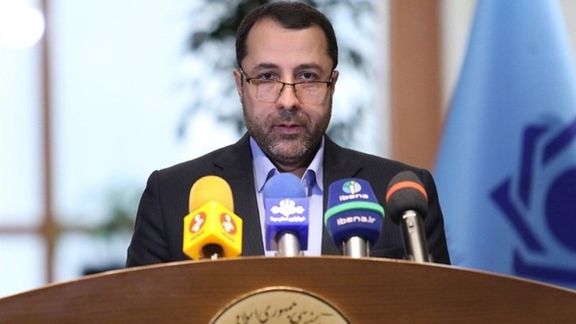Iran Says It Spent $20 Billion More In Hard Currency Last Year

The chairman of Central Bank of Iran (CBI) announced Monday that in the past one year it provided 57 percent more foreign currency to people and businesses.

The chairman of Central Bank of Iran (CBI) announced Monday that in the past one year it provided 57 percent more foreign currency to people and businesses.
Ali Salehabadi, appointed by President Ebrahim Raisi last year to head the CBI, said on Monday that from March 21, 2021, until March 20, 2022 (the Iranian year 1400) the government dispensed $57 billion to individuals and businesses, a 57-percent rise compared with the previous 12 months.
The foreign currency market is largely controlled by the government, except a black market, where people can buy and sell hard currencies. The size of this unofficial market is hard to estimate, since transactions are off the books and deliberately hidden.
In Iran’s centralized economy and banking system the government has been controlling the large transactions, through evolving regulations in the past 43 years since the Islamic Republic was established.
Businesses can always buy dollars in the black market or through official channels after receiving the necessary approvals, but the government has to inject the hard currency, either through its official banking system or the black market, to finance imports and prevent a run on the national currency.
If the figure Salehabadi announced is true, it means the Islamic Republic had at least $20 billion more at its disposal in the past 12 months for making available $57 billion for imports and other needs, such as foreign travel and stipends for students abroad – not mentioning capital flight from the country.

Part of the available hard currency invariably leaves Iran in the form of individuals taking their money into safer markets, such as Turkey, the United Arab Emirates or Western countries.
Again, if Salehabadi’s claim is true, it means Iran earned $20 billion more during March 2021-March 2022, presumably from higher oil exports, banned by United States’ sanctions that are increasingly circumvented by Tehran.
There have been numerous reports since late 2020 that Iran has been selling more oil, clandestinely, mainly to China at cheaper prices. Iranian shipments have increased from as low as 200,000 barrels per day in 2019 to as high as more than one million barrels in late 2021.
The question is why the US has not tried harder to enforce its sanctions.
President Joe Biden decided to rejoin the 2015 Iran nuclear agreement that his predecessor abandoned in May 2018, which meant he would lift sanctions if an agreement could be worked out with Iran to mutually revive the deal known as the JCPOA. One of his first foreign policy actions was the start of multilateral talks in Vienna a year ago, and it appears that the administration decided not to go out of its way to enforce the economic sanctions.
China and others might have also calculated that Washington would not make a fuss about sanctions violations amid nuclear talks, which also involved Moscow and Beijing.
The result has been considerably higher oil income for Iran, that some argue has made Tehran confident enough not to have agreed to a deal in Vienna after 12 months of talks, and lately demanding more concessions from the United States.
Although more dollars flowed into Tehran’s coffers in recent months, the Iranian currency has remained weak, having lost its value eightfold since the beginning of 2018. One US dollar now buys 270,000 rials, compared with 34,000 in 2017, before the US imposed sanctions.
The reason for a lack of improvement for the rial, or in the case of a 40-percent annual inflation rate, could be the depth of the economic crisis gripping the country. A mere $20 billion cannot quickly make a dent in the inefficient economy, burdened by tens of billions of dollars of energy subsidies energy and military, ideological overhead.
Despite the additional income, Iran is by no means out of the woods. Any tightening of sanctions can erode the gain in oil exports and return the situation to the pressures of 2019.